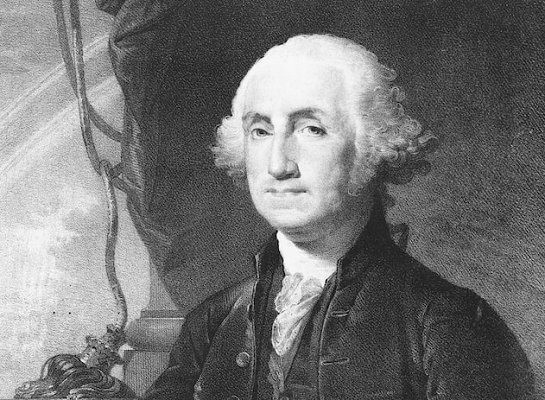This week, I want to examine the place of prayer in perhaps the most influential American ever, George Washington. His name and character have been revered not only in America but throughout the world. Washington was perhaps the most unique political leader we have ever had in our nation.
His tenacity to persevere against all reasonable odds is epic! But where did he find such courage? Where did his resolve to win come from? How could he accomplish the many miracles that seemed to surround him in battle? How could he have the humility to not seek a third term of office as President when he so clearly was the people’s choice?
Well, as with all of our founding fathers, the letters are stories of their lives, and those letters and recordings of their actions by the people of the day reveal just what they believed, particularly about the role they were playing in Nation building and how they viewed God’s place in that process.
We have a famous painting of General George Washington kneeling in the snow at Valley Forge. Here, he faced sure defeat as his rag-tag army was abandoning the great cause of freedom, and those who were staying were starving and poorly clad for the frigid winter. Let’s look at the background of how he arrived to lead this rag-tag army.
The Second Continental Congress met on May 10, 1775, and asked George Washington to become their commander-in-chief. He was charged with basically building a group of farmers into a military force that would take on the greatest Empire of the world at that time, Great Britain. Washington knew that he needed to instill in the hearts of his men a deep conviction that what they were doing was for God and that they were under God’s protection. This is what he himself believed about what he was doing, building a new and free nation, because he was directed by faith in God, and he believed that God was and would protect him. There are several stories of his miraculous escape from direct bullet fire in the midst of battle.
So, General Washington issued an order that each day was to begin with prayer led by the officers of each unit. He also ordered that, unless their duties required them to be elsewhere, every soldier was to observe “ a punctual attendance of Divine services, to implore the blessing of heaven upon the means used for our safety and public defense.”
He also forbade all profanity and promised swift punishment for any who uttered oaths that would offend God or man. Can you imagine a leader on any level or office today forbidding swearing and profanity? Profanity has become the very fabric of our culture. On a side note, I was once told that the more vulgar you speak is a sign of your high I.Q.
Oh, well, let’s move on…Washington continually sought to instill in his troops faith and reverence toward God. Going back to the story of Valley Forge, during the difficult part of the war for independence, Rev. Henry Muhlenberg was able to observe Washington’s conduct from his nearby Lutheran Church. He wrote, Washington rode around among his army yesterday and admonished each one to fear God.
Issac Potts a Quaker who lived near Valley Forge, Pennsylvania. When the Continental Army, led by Washington, was quartered there. The times were difficult on every level for Washington and his men. Potts was opposed to the war until, one day, he had a life-changing experience while riding in the woods near the army camp. He said, “I heard a plaintive sound as of a man at prayer. I tied my horse to a sapling and went quietly into the woods, and to my astonishment, I saw the great George Washington on his knees alone, with his sword on one side and his cocked hat on the other. He was at Prayer to the God of the Armies, beseeching to interpose with his Divine aid, as it was ye Crisis and cause of the country, of humanity, and of the world. Such a prayer I never heard from the lips of man. I left him alone, praying. I went home and told my wife I saw a sight and heard today what I had never saw or heard before, and just related to her what I had seen and heard and observed. We never thought a man could be a solider and a Christian, but if there is one in the world, it is Washington.”
Finally, having completed his call to serve in the birthing of the nation, Washington issued his letter of resignation as Commander-in-Chief to the Continental Congress, whereupon he wrote what I would call a pastoral letter, dated June 14th, 1783, to the governors of the various states. This letter reveals again his commitment to “earnest prayer.”
One section of the letter reads, “ I now make it my earnest prayer that God would have you and the State over which you preside, in his holy protection; that he would incline the hearts of the citizens…to entertain a brotherly affection and love for one another…and to demean ourselves with charity, humility and pacific temper of mind, which were the characteristics of the Divine Author of our blessed religion, and without humble imitation of His example in these things, we can never hope to be a happy nation.”
In conclusion, there are many written records of Washington beseeching heaven for help and looking to God for direction and protection.
Until Next Week…
Allen

